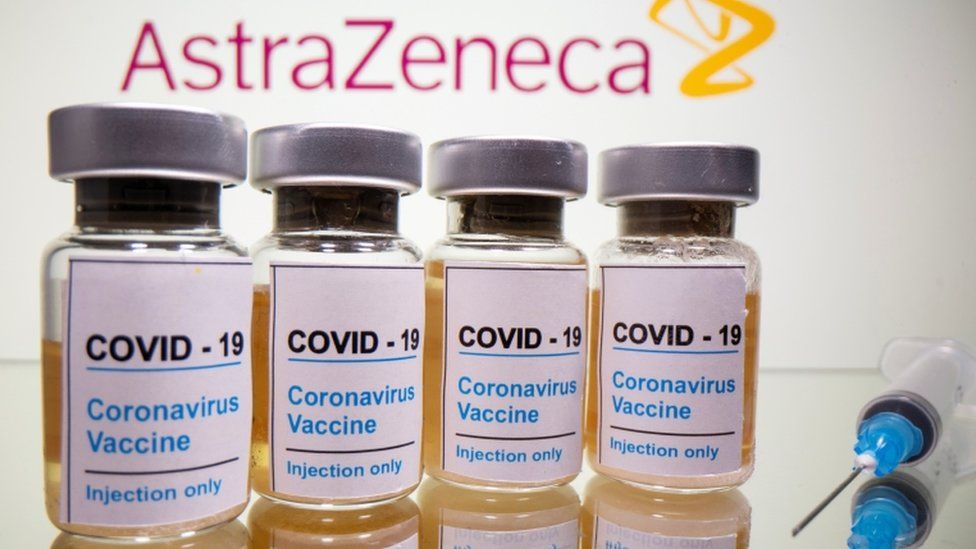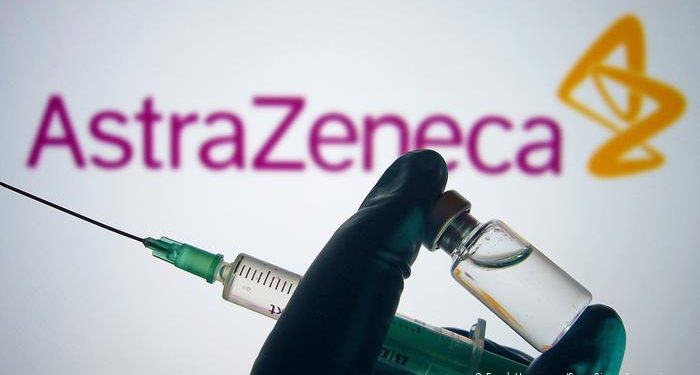The suspended rollout of AstraZeneca Plc’s Covid-19 vaccine in some European Union countries over concerns about possible side effects could delay a goal of immunizing three-quarters of their populations against the resurgent coronavirus by as much as a month.

The precautions could push back efforts to hit that threshold by at least a couple of weeks and potentially longer — to September instead of August — according to London-based research firm Airfinity Ltd.
While the EU is relying heavily on the AstraZeneca-University of Oxford inoculation, it has a number of weapons at its disposal in the race to escape the pandemic. Those include vaccines from Pfizer Inc. and its partner BioNTech SE, as well as Moderna Inc. The bloc last week cleared Johnson & Johnson’s shot, too, though it’s not yet available for use.
Europe Targets
However, Europe is still on track to meet vaccine supply targets as increased output from Pfizer offsets any shortages in AstraZeneca shots, EU Industry Commissioner Thierry Breton said on Europe 1 radio over the weekend.
At the current average rate of 1.26 million doses per day, it would take 16 months for the European Union to cover 75% of its population with two-dose vaccines, compared with five months for the U.S. and seven for the U.K., according to Bloomberg’s Vaccine Tracker. Airfinity’s estimates assume that the daily rate of shots will increase as supplies grow, speeding up progress toward that key threshold.
AstraZeneca said more than 17 million doses had been administered in Europe and the U.K., with no evidence that the shot increased the risk of blood clots. As of March 8, there had been 15 reports of clots in the legs, called deep vein thrombosis, and 22 cases where they reached the lungs, known as pulmonary embolism. The company said it’s continually monitoring safety.
Denmark’s medicines regulator said Monday that a 60-year-old woman who died after receiving the AstraZeneca vaccine suffered from an “unusual” combination of symptoms that are now being thoroughly investigated by the European Medicines Agency and other authorities.
Supply woes and questions about the initial trials that extend to the shot’s efficacy against novel variants have hit the AstraZeneca vaccine. Even as some countries suspend its use, others like the U.S. are moving to protect their own stockpiles, blocking efforts to redistribute the shot’s supply to places with urgent needs.
There are a number of factors that could affect the pace of the immunization campaign in Europe and elsewhere over the coming months. But if doubts grow and people are slow to get vaccinated across the continent, the European timelines could be pushed back even further, according to Airfinity.
The EMA is scheduled to evaluate data on the AstraZeneca shot on Thursday, Marco Cavaleri, chair of the regulator’s vaccine evaluation team, told Italy’s Radio24.
The regulator sees “no reason to stop using” the injection, he said. “Still, we understand the position of member states which, as a precautionary measure, prefer to wait until we complete our investigations.” [Bloomberge]















